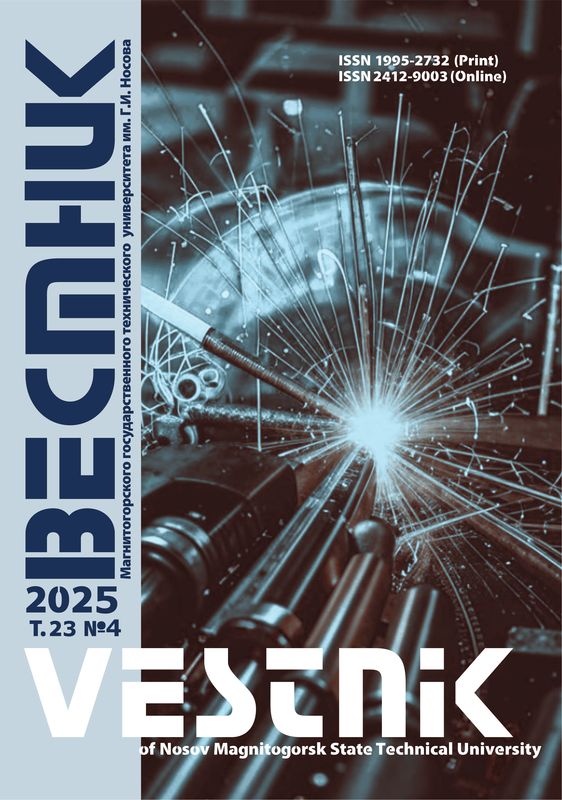DOI: 10.18503/1995-2732-2021-19-4-29-35
Abstract
Problem Statement. The quality of castings depends on the quality of manufacturing foundry molds and cores. The sodium silicate core-making technology is one of the most available, cheap, and eco-friendly technologies, so it is of current interest. This technology has some disadvantages making it less competitive in contrast with other core-making technologies on the quality stability and manufacturability. The sodium silicate core mixture has a comparatively short durability; its technological parameters significantly depend on a chemical composition, a silicate module, and density of used sodium silicate, as well as on a composition, temperature, and moisture, that has a significant effect on the quality of sodium silicate cores during the core-making process. Monitoring core mixture parameters during production and application will contribute to improving the quality of sodium silicate cores. Objective. The research is aimed at developing a method used to monitor parameters of the sodium silicate core mixture during its production and application at the core manufacturing department of a foundry shop. Methods Applied: mathematical modeling of the acoustic wave distribution and reflection in media under study, planning of experiments, laboratory-scale experiments, statistical data processing and a comparative analysis of the experimental results. Originality. The paper describes a suggested method used to monitor technological parameters of the sodium silicate core mixture: average density, durability, the percentage of sodium silicate and additives. Results. The paper gives a potential application of the suggested express control method for the core-making process due to high performance and a satisfactory precision. Practical Relevance. The paper presents results of the experimental verification of the suggested parameter control method for sodium silicate core mixtures with various percentages of sodium silicate and additives, which represent the interaction peculiarities of acoustic waves with core mixtures of various compositions. The paper discusses experimental results and potentials of the suggested control method for the core-making technology.
Keywords
Foundry sodium silicate core, core mixture, composition, durability, core mixture density, control method, acoustic wave, acoustic amplitude, absorption, reflection, piezoelectric transducer, experiment, dependence.
For citation
Gutko Yu.I., Voytenko V.V. Monitoring of Sodium Silicate Core Sand Mixture Parameters During Production and Application. Vestnik Magnitogorskogo Gosudarstvennogo Tekhnicheskogo Universiteta im. G.I. Nosova [Vestnik of Nosov Magnitogorsk State Technical University]. 2021, vol. 19, no. 4, pp. 29–35. https://doi.org/10.18503/1995-2732-2021-19-4-29-35
1. Yurchenko S.V. Modern formula of quality. Litiyo i metallurgiya [Foundry production and metallurgy], 2019, no. 3, pp. 89–92. (In Russ.)
2. Di Sabatino Marisa. Fluidity of aluminium foundry alloys. Doctoral thesis, comprehensive summary. Norwegian University of Science and Technology, Department of Materials Technology, 2005, 161 p.
3. Mikell P. Groover. Fundamentals of modern manufacturing: materials, processes, and systems. 7th Ed. Hoboken, New Jersey, USA: John Wiley & Sons, 2020, 816 p.
4. Holtzer M., Kmita A. Mold and core sands in metalcasting: chemistry and ecology sustainable development. New York City, Dordrecht, Heidelberg, London: Springer, 2020, 378 p.
5. Xie Yiran. Recycling of foundry waste materials. Electronic thesis, the University of Birmingham, 2016, 306 p.
6. Belash V.V., Akhmetov T.A., Oborov M.V. The ways to ensure fatigue strength of cold-formed rebars. Litiyo i metallurgiya [Foundry production and metallurgy], 2019, no. 3, pp. 102–106. (In Russ.)
7. Jain P.L. Principles of foundry technology. 5th Ed. New York City: Tata McGraw Hill Publishing, 2014, 479 p.
8. Srinivasan M. Science and technology of casting processes. London: IntechOpen Limited, 2012, 350 p.
9. Wang W., Conley H.W., Stoll J.G. Rapid tooling guidelines for sand casting. New York City, Dordrecht, Heidelberg, London: Springer, 2010, 164 p.
10. Brown J.R. Foseco Ferrous Foundryman's Handbook. 11th Ed. Oxford: Butterworth Heinemann, 2000, 384 p.












